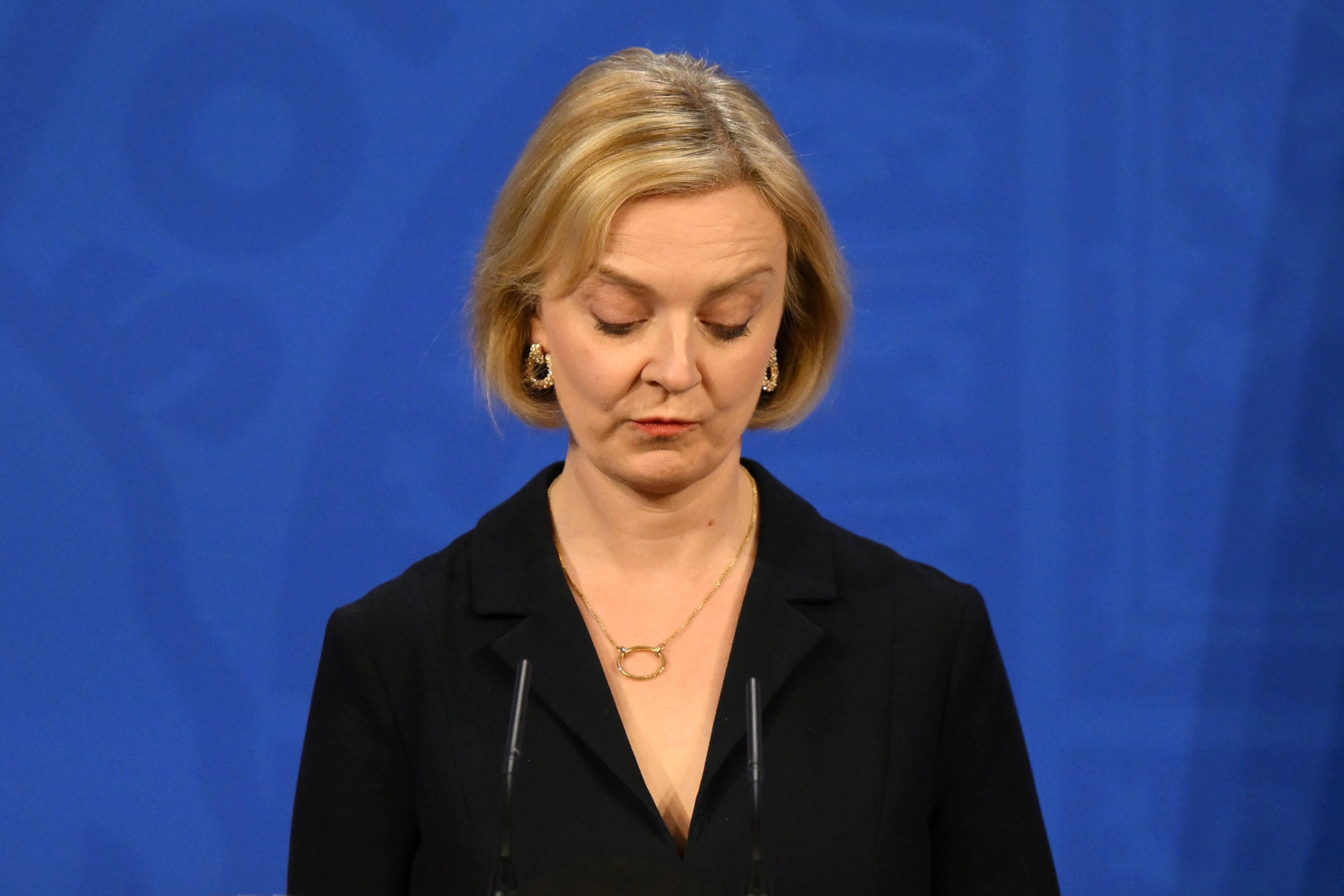Pound strengthens and bonds rally after Jeremy Hunt takes axe to Liz Truss Budget
Chancellor warns of more ‘tough’ decisions as he dismantles Truss and Kwarteng’s economic agenda

The pound strengthened and interest on government debt fell as the markets reacted positively to the new chancellor's dismantling of the September financial plan.
Jeremy Hunt, the former health and foreign secretary, on Monday took an axe to the statement outlined by his predecessor Kwasi Kwarteng only weeks ago.
Mr Hunt scrapped virtually all of the measures outlined Ms Truss’s economic plan, including a 1p cut to the basic rate of income tax, currently at 20p.

He also pledged to scale down the energy bill support scheme after April.
Sterling started the morning strongly following a series of interviews given by Mr Hunt over the weekend in which he vowed to increase taxes and cut spending.
The pound has rebounded by more than 1.2 per cent and was trading at $1.13 shortly after Mr Hunt delivered his emergency statement, which he announced early on Monday morning.
Interest on government bonds - or debt - was also down at the start of the day as Mr Hunt sought to assure the markets that he would be a fiscally responsible channcellor.
Yields on 30-year government bonds, or gilts, eased back further by around 10 per cent, as Mr Hunt set out plans to shave off billions of government debt.
The interest on long-dated bonds hit a low of around 4.32 per cent shortly after the first announcement.
In a televised statement, the chancellor - who was appointed by Ms Truss on Friday after she sacked Kwasi Kwarteng - warned of more "tough" decisions to come.

In a direct rejection of how Ms Truss views the role of government, Mr Hunt said: "Governments cannot eliminate volatility in markets but they can play their part and we will do so.”
His intervention came following weeks of instability in the finacial markets in the aftermath of his predecessor’s statement on 23 September.
The former chancellor's mini-Budget prompted the Bank of England to intervene with an emergency £65bn bond-buying scheme to prop up pension funds at risk of collapse, as the cost of government borrowing rose to levels similar to those seen in Greece and Italy.
Discontent about the state of the markets sparked a fresh rebellion among Tory backbenchers, many of whom were already uneasy about Mr Kwarteng and Ms Truss’s tax-cutting agenda, which predominately benefited the better-off during a cost of living crisis.
Questions about Ms Truss’s future as PM continued on Monday afternoon after Mr Hunt rejected her plans.
Mr Hunt said the energy price guarantee - which had been due to cap prices for two years - will end in April after which time the government will look to target help for those most in need.
He said he is abandoning plans to cut the basic rate of tax by 1p - which had been due to be brought forward to April - and that it would remain at 20p in the pound until the country can afford to reduce it.
The cut in dividend tax promised by his predecessor will also go, along with VAT-free shopping for overseas tourists, the freeze on alcohol duty, and the easing of the IR35 rules for the self-employed.
Mr Hunt said the tax measures alone will bring in £32 billion after economists estimated the Government is facing a £60 billion black hole in the public finances.






Join our commenting forum
Join thought-provoking conversations, follow other Independent readers and see their replies
Comments